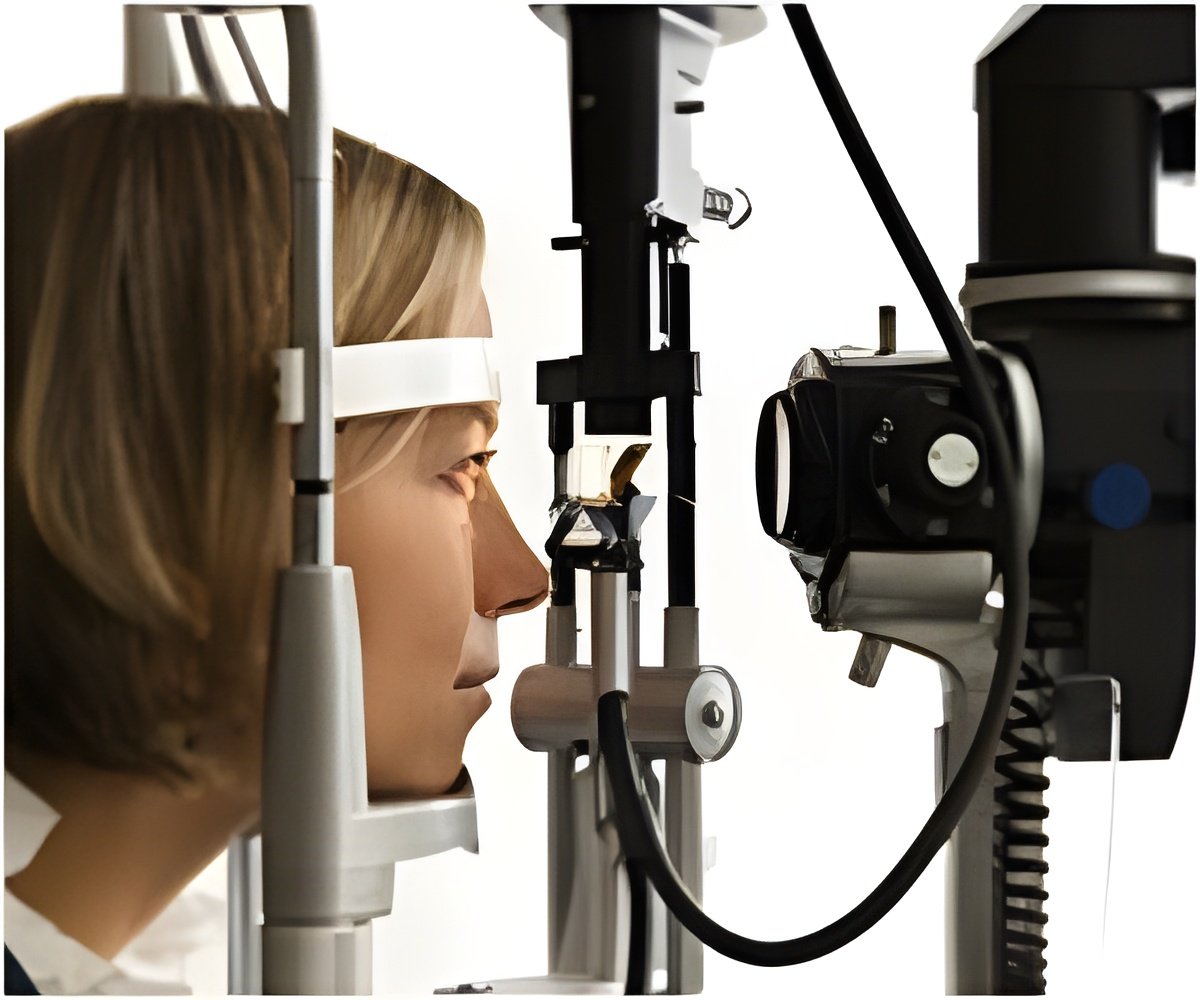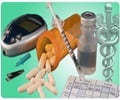Fewer than half of Americans with damage to their eyes from diabetes are aware of the association between the disease and visual impairment, says research.

High blood sugar levels associated with poorly controlled diabetes can damage the small blood vessels in the retina, the light-sensitive tissue lining the back wall of the eye. This can cause poor blood flow or leaking of fluids from these blood vessels, which brings on swelling of the retina. The condition, known as diabetic macular edema, can cripple central vision and the ability to see detailed images, such as the face of someone looking directly at you. Left untreated for a year or longer, macular edema can lead to permanent vision loss.
"As a nation, we are woefully inadequate as health care providers in explaining to our patients with diabetes that the condition can have a detrimental effect on their eyes," says study leader Neil M. Bressler, M.D., a professor of ophthalmology at the Johns Hopkins University School of Medicine and chief of the retina division at the Johns Hopkins Wilmer Eye Institute. "The earlier we catch diabetic eye disease, the greater the likelihood that we can help patients keep their good vision. Clearly, this research shows how far we have to go to educate people about this frequent and feared complication."
People with diabetes have at least a 10 percent risk of developing diabetic macular edema during their lifetime, and estimates suggest that close to 745,000 of them in the United States have swelling in the macula, the center portion of the retina.
Until recently, 15 percent of patients who developed the condition and were treated for it with the standard laser therapy still lost their vision. Now, Bressler says, drugs injected into the eye reduce the swelling and risk of vision loss to less than five percent. With treatment, moreover, half of patients find their vision improves, making prompt diagnosis critical.
For the study, the Johns Hopkins-led team of researchers used data collected between 2005 and 2008 from Americans enrolled in the National Health and Nutrition Examination Survey (NHANES). Among the 798 people over the age of 40 with a self-reported diagnosis of type 2 diabetes and who had retinal imaging done, 48 had diabetic macular edema and were asked in the survey whether a physician had told them about the link between diabetes and vision problems (44.7 percent were). They were also asked whether they had seen a heath care provider about their diabetes in the previous year (46.7 percent had), and whether they had received an eye examination, including pupil dilation, in the previous year (59.7 percent had). Some 30 percent of the individuals with diabetic macular edema already had some type of vision loss related to the disease.
Bressler says some people fail to see eye doctors or diabetes educators because they lack insurance. He adds that most of the problem is likely a lack of understanding about the risks, and most people probably aren''t referred to eye care specialists who can quickly determine retinal vulnerability.
Advertisement
Now that the extent of the problem is known, Bressler says, strategies can be developed to address issues of patient education, access to specialists and costs.
Bressler is editor of JAMA Ophthalmology and recuses himself from the process of determining whether papers from Johns Hopkins are chosen for acceptance to the journal.
Advertisement
Bressler is principal investigator of grants at The Johns Hopkins University sponsored by Bayer, Genentech Inc., Lumenis Inc., Notal Vision, Novartis Pharma AG, Optovue Inc. and Regeneron Pharmaceuticals Inc. Several of Bressler''s co-authors are employees of Genentech Inc.
Other Johns Hopkins researchers involved in the study include Julie K. Bower, Ph.D., and Elizabeth Selvin, Ph.D., who are supported by Bressler''s Johns Hopkins University grant sponsored by Genentech.
Source-Newswise















